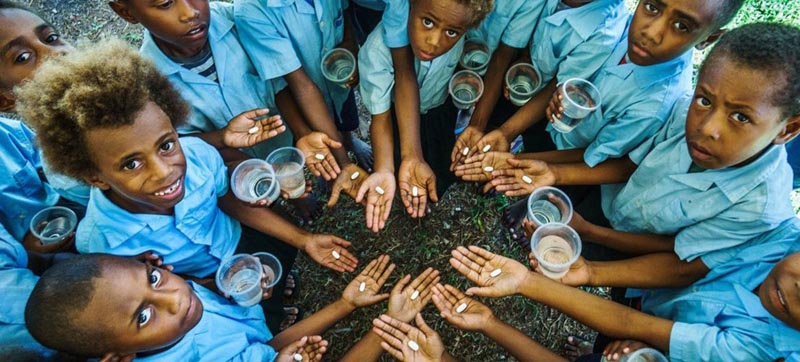 WHO
WHO
WHO calls for more action to end ‘cycles of poverty and stigma’ related to tropical diseases
New York: More countries have worked to eliminate dengue, leprosy and other neglected tropical diseases (NTDs) over the past decade, but greater efforts and investment are needed in the face of pandemic-related disruptions, the World Health Organization (WHO) said on Monday.
To mark World Neglected Tropical Diseases Day, the UN agency has released a report highlighting progress and challenges in delivering care for these 20 conditions, which mainly affect the world’s poorest people.
NTDs are caused by a variety of pathogens including viruses, bacteria, parasites, fungi and toxins, and can be deadly. Other examples are Buruli ulcer, Chagas disease, chikungunya, rabies, scabies and yaws.
Stigma and hardship
They are mainly prevalent in tropical areas, primarily in locations where water safety, sanitation and access to healthcare are inadequate. These diseases often cause life-long stigma, and resulting economic hardship, and have devastating health, social and economic consequences.
Although nearly 180 countries and territories reported at least one case of NTDs in 2021, just 16 nations account for 80 per cent of the global burden. Globally, some 1.65 million people are estimated to require treatment for at least one of these diseases.
“Around the world, millions of people have been liberated from the burden of neglected tropical diseases, which keep people trapped in cycles of poverty and stigma,” said Tedros Adhanom Ghebreyesus, the WHO Director-General.
“But as this progress report shows, we still have a lot of work to do,” he added.
Building on progress
The report showed that the number of people requiring NTD interventions fell by 80 million between 2020 and 2021.
Furthermore, eight countries had eliminated at least one of these diseases during this period. As of last year, the number stood at 47 countries, and more were on the road to achieving this target.
These accomplishments build on a decade of significant progress, said WHO, with 25 per cent fewer people requiring interventions in 2021 than in 2010.
Additionally, more than a billion people were treated for NTDs each year between 2016 and 2019.
The COVID-19 impact
However, the COVID-19 pandemic has also had significant impact on community-based interventions, access to health facilities, and on supply chains for healthcare products.
As a result, 34 per cent fewer people received treatment between 2019 and 2020, even if a general resumption of activities sparked an 11 per cent increase in recovery the following year, with roughly 900 million people treated.
In 2020, WHO’s governing body, the World Health Assembly, endorsed an NTD road map for the coming decade, and the report emphasizes the need for more action and investment to reverse delays and accelerate progress.
Accountability, financing and partnerships
Promoting country ownership and accountability, as well as sustainable and predictable financing, will be key to providing quality NTD services.
WHO also stressed the importance of multi-sectoral collaboration and partnerships.
Last week, the UN agency signed a new agreement with Gilead Sciences, a research-based American biopharmaceutical company, for the donation of 304,700 vials of AmBisome, an antifungal medicine used to treat visceral leishmaniasis in countries most impacted by the disease, such as Bangladesh, Ethiopia, India, Kenya, Nepal, Somalia and South Sudan.
This new three-year collaboration, which extends a previous agreement to 2025, is estimated at $11.3 million and also will support improved coverage and access to diagnosis and treatment.
WHO urged more partners and donors to fill existing gaps that hamper the full-scale implementation of NTD activities at the global and local levels.
Support Our Journalism
We cannot do without you.. your contribution supports unbiased journalism
IBNS is not driven by any ism- not wokeism, not racism, not skewed secularism, not hyper right-wing or left liberal ideals, nor by any hardline religious beliefs or hyper nationalism. We want to serve you good old objective news, as they are. We do not judge or preach. We let people decide for themselves. We only try to present factual and well-sourced news.







